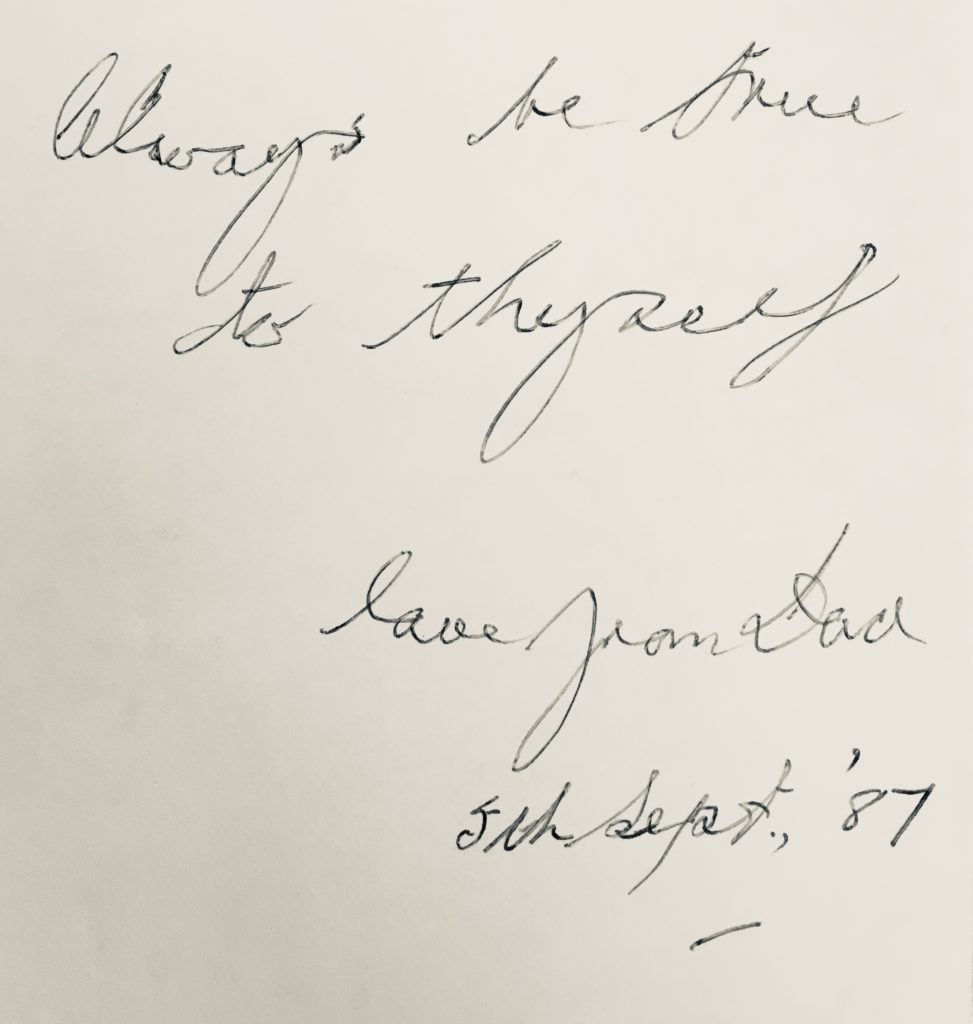
Having spent the last few weeks reflecting on some of the useful things I’ve learned since turning 18 – and inviting others to write in with their learnings too – I’ve found myself smiling wryly as I realise how many times people tried to share their wisdom with me over the years, and how many times I was completely incapable of understanding what they were trying to say.
In a recent conversation with behavioural scientist, Jason Hreha, I mention one such example. As a child, my dad would often tell me to “take deep breaths” – and I would often think how silly he was to imagine that something as inconsequential as taking deep breaths could be of any use whatsoever in the particular crisis I was facing. Fast forward three decades or so – and it turns out he was right. Deep breathing is good for all sorts of things.
Hmph.
Then there were the many times he reminded me that “charity begins at home”. Back then I thought he was using this as an excuse to be ungenerous to others. Now I realise that he was probably trying to share more or less the same insight I shared in a post just the other week. (see ‘Kindness’)
Hmph again.
And there was the time he paraphrased Shakespeare’s: “To thine own self be true.” I’m not sure what I thought he meant at the time, but I remember not being terribly impressed. I had little interest in being true to myself at that point, busy as I was, gazing at others who seemed so much more deserving of my loyalty.
Ironic, really, that I find myself doing the work I do now – so much of which emphasises the importance of self-awareness and internal validation in building resilience and psychological wellbeing.

It’s tempting to imagine that we can save ourselves and those we love a lot of time and heartache by sharing wisdom down the generations, but the reality seems to be that we only take on board new ways of seeing things when we are ready to do so.
However, new research suggests that to focus on this is to miss an important point.
According to a recent study by Robin M. Kowalski and Annie McCord of Clemson University published in the Journal of Social Psychology, we “… should consult ourselves for advice we would offer to our younger selves… The data indicate that there is much to be learned that can facilitate wellbeing and bring us more in line with the person that we would like to be should we follow that advice.” (Read more here.)
In essence, by thinking of what we wish our younger self had known and then acting on it here and now, we can help our current self become the person we wish to be in the future. A useful exercise in its own right, one could argue.
Sadly, my dad isn’t around to share a wry smile at all the wheel-reinvention I’ve been doing. Nevertheless, I like to imagine that, even though I wasn’t able to comprehend the insights he was trying so hard to share with me all those years ago, there might have been some value for him in the act of sharing. It would be nice to think so.
(Thanks, Dad.)
